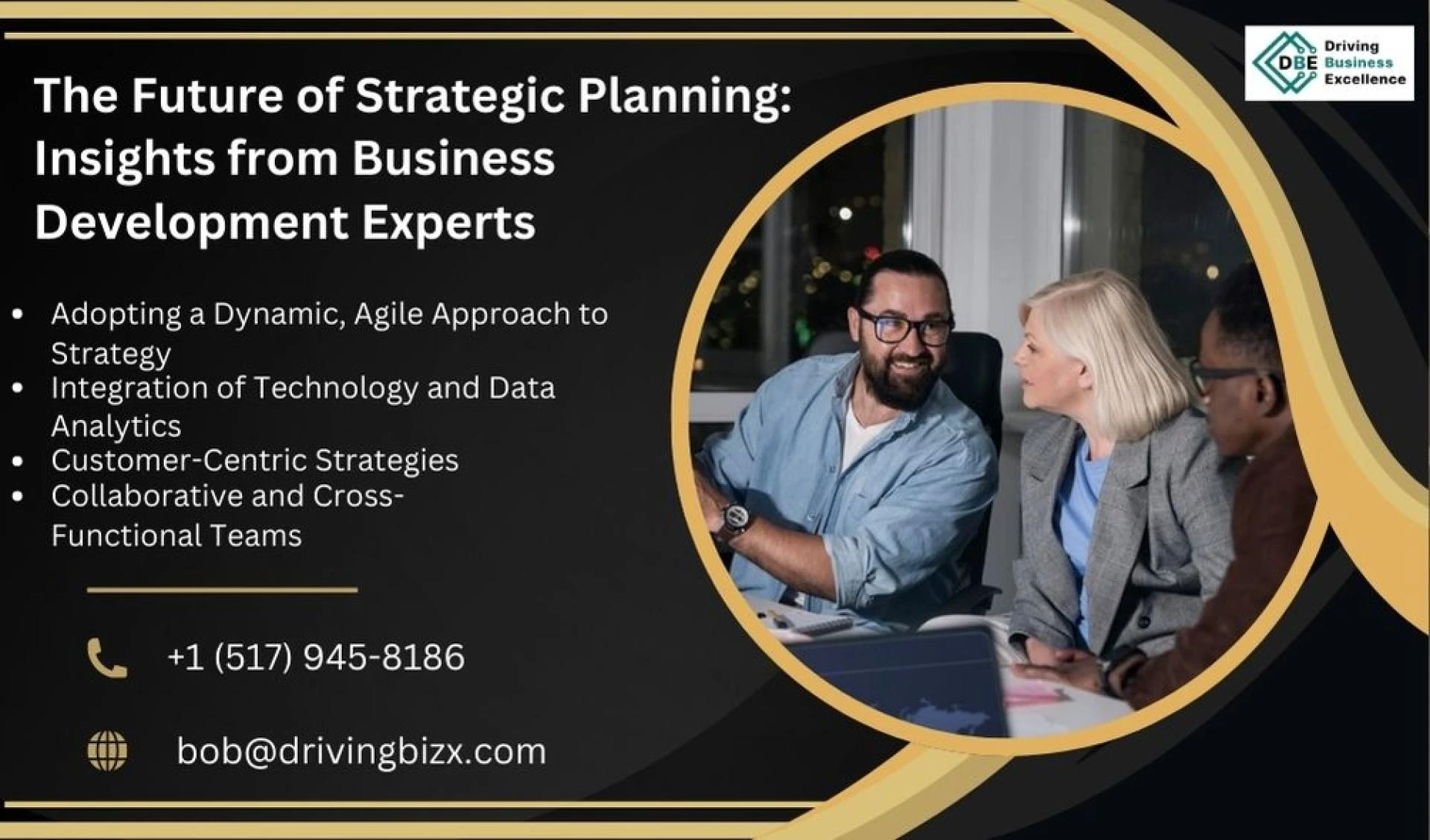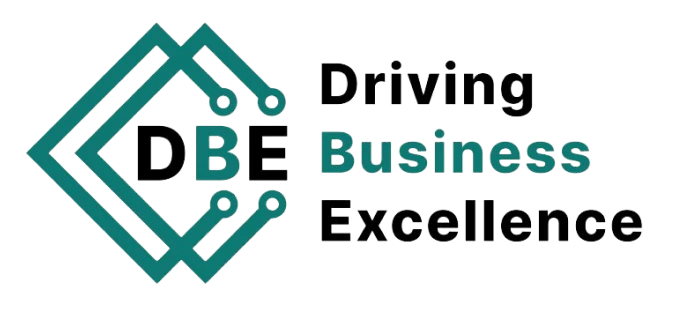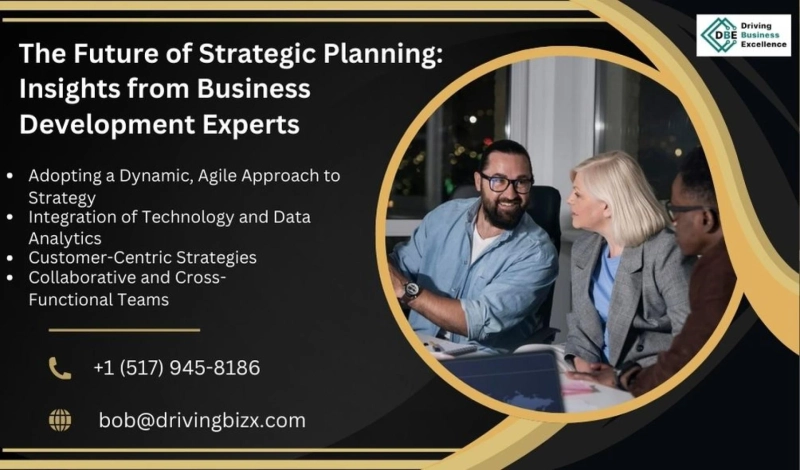Strategic planning has long been a cornerstone for businesses aiming to maintain competitive advantage, optimize resources, and achieve growth. As markets evolve and new technologies emerge, the future of strategic planning is shifting. Business development experts, including business process consultants, are helping organizations adapt to these changes, ensuring they remain ahead of the curve. This article delves into the future of strategic planning and the insights that business development experts offer to guide companies toward success.

1. Adopting a Dynamic, Agile Approach to Strategy
Traditional strategic planning often revolved around long-term goals set in stone, with little room for deviation. However, with the fast-paced nature of today’s business world, organizations must adopt a more flexible, agile approach. Business development experts predict that the future of strategic planning will focus on short-term adaptability while keeping an eye on long-term objectives.
Agile strategic planning allows businesses to respond quickly to changing market conditions, competitor moves, and technological advancements. By continually reassessing the strategy, companies can pivot when needed and capitalize on emerging opportunities. This flexible approach ensures that businesses are not locked into a plan that may become irrelevant as the landscape shifts.
2. Integration of Technology and Data Analytics
The digital transformation is reshaping every industry, and strategic planning is no exception. Business development experts emphasize the growing role of technology and data analytics in crafting future strategies. By leveraging data, companies can make informed decisions, predict trends, and optimize their strategies to meet evolving consumer demands.
Artificial intelligence (AI) and machine learning are also expected to play a crucial role in strategic planning. These technologies can help businesses forecast outcomes, analyze competitor strategies, and identify market gaps. Integrating AI into the strategic planning process can enhance decision-making, reduce risk, and unlock new avenues for growth.
3. Customer-Centric Strategies
The future of strategic planning will be heavily influenced by customer expectations. As customer preferences become more dynamic, organizations must develop strategies that are not only adaptive but also deeply rooted in customer insights. Business development experts suggest that businesses must prioritize customer feedback, engagement, and satisfaction when forming their strategies.
Incorporating customer-centric strategies means developing personalized experiences, anticipating customer needs, and responding to feedback in real-time. This approach will help businesses build loyalty, create competitive differentiation, and increase market share.
4. Collaborative and Cross-Functional Teams
As organizations strive for innovation and efficiency, strategic planning will increasingly involve cross-functional teams. Collaboration between departments such as marketing, finance, operations, and HR will be essential for aligning the entire business toward a unified strategic goal. Business development consultants believe that businesses will need to break down silos and foster a culture of collaboration to implement effective strategies.
Furthermore, input from external experts, such as business process consultants, will become a key component in strategic planning. These consultants bring a fresh perspective and specialized knowledge that can help streamline operations, improve efficiency, and ensure that strategies are well-executed.
5. Sustainability and Ethical Considerations
Sustainability is no longer just a trend; it’s a strategic imperative. Future strategic planning will need to factor in environmental, social, and governance (ESG) considerations. Businesses are under increasing pressure from consumers, investors, and governments to adopt sustainable practices and demonstrate corporate responsibility.
Business development experts predict that the most successful strategic plans of the future will incorporate sustainability at their core. This means businesses will need to develop green initiatives, reduce their carbon footprint, and ensure that their products and services are ethically sourced and produced. By focusing on sustainability, companies can not only contribute to the well-being of the planet but also improve their brand image and create long-term value.
6. Emphasis on Innovation and Continuous Learning
Innovation will be one of the most critical factors in the future of strategic planning. With the rapid pace of technological change, companies that fail to innovate risk falling behind. Business development experts suggest that businesses must build a culture of innovation where employees are encouraged to experiment, challenge the status quo, and think outside the box.
Furthermore, continuous learning will play a vital role in staying ahead of the competition.
Companies will need to invest in employee development, leadership training, and upskilling to ensure that their teams are equipped with the knowledge and skills required to execute new strategies effectively.
7. Long-Term Vision with Short-Term Execution
While adaptability and agility will be central to future strategic planning, business development experts stress that businesses must still maintain a long-term vision. A successful strategy will require a balance between short-term execution and long-term objectives. This means businesses must set clear, measurable goals while ensuring they are aligned with the company’s overarching vision.
To achieve this balance, businesses will need strong leadership and clear communication. Strategic leaders will play an essential role in guiding teams, maintaining focus on long-term goals, and ensuring that short-term actions align with the broader vision.
Conclusion
The future of strategic planning is poised for transformation, and business development experts are at the forefront of this change. From adopting agile methods and leveraging technology to focusing on customer-centric strategies and sustainability, companies must adapt to stay competitive. As the business environment continues to evolve, integrating insights from business process consultants and embracing collaboration will be essential for success. By preparing for these shifts, organizations can ensure they are ready to meet the challenges and opportunities of tomorrow.


